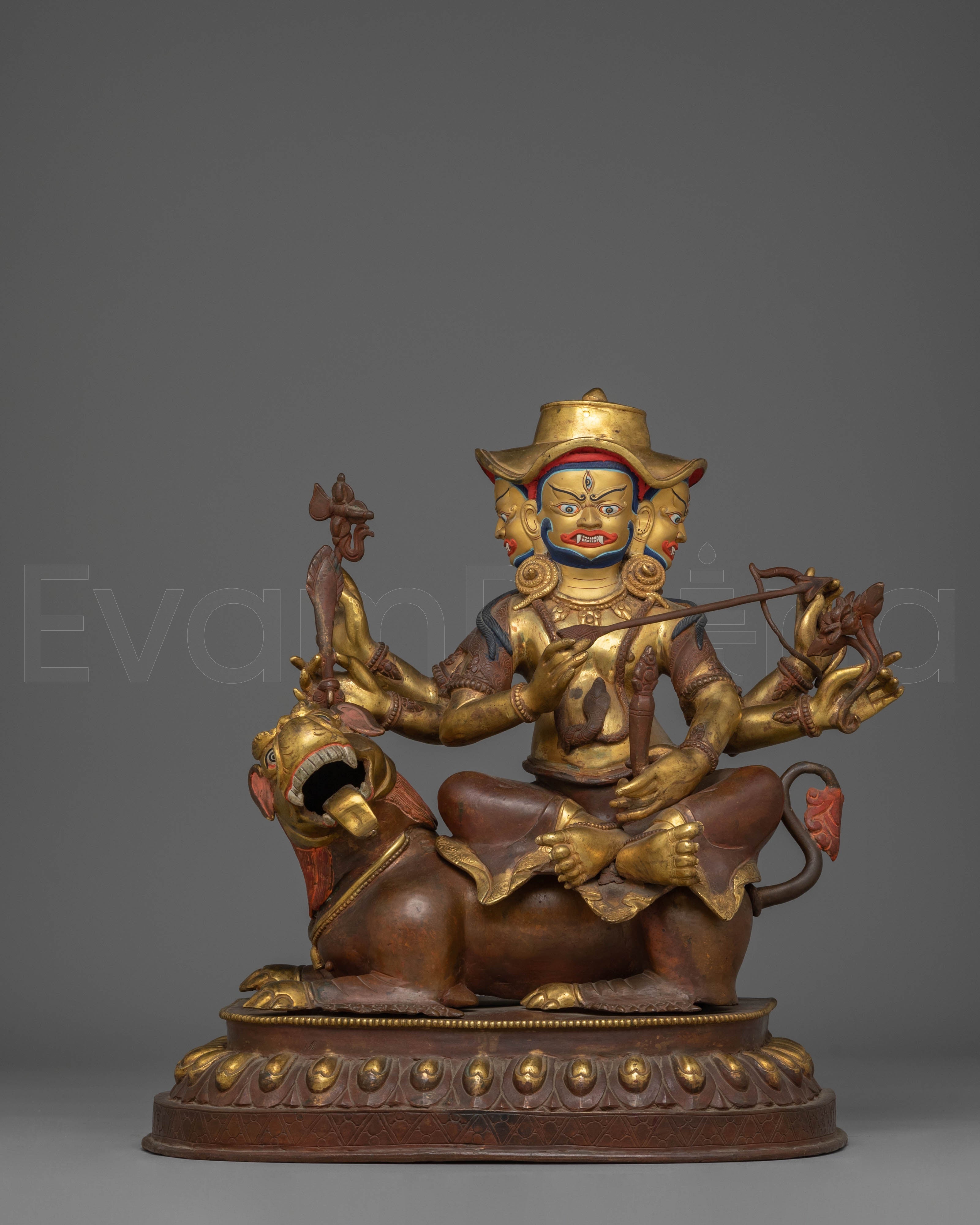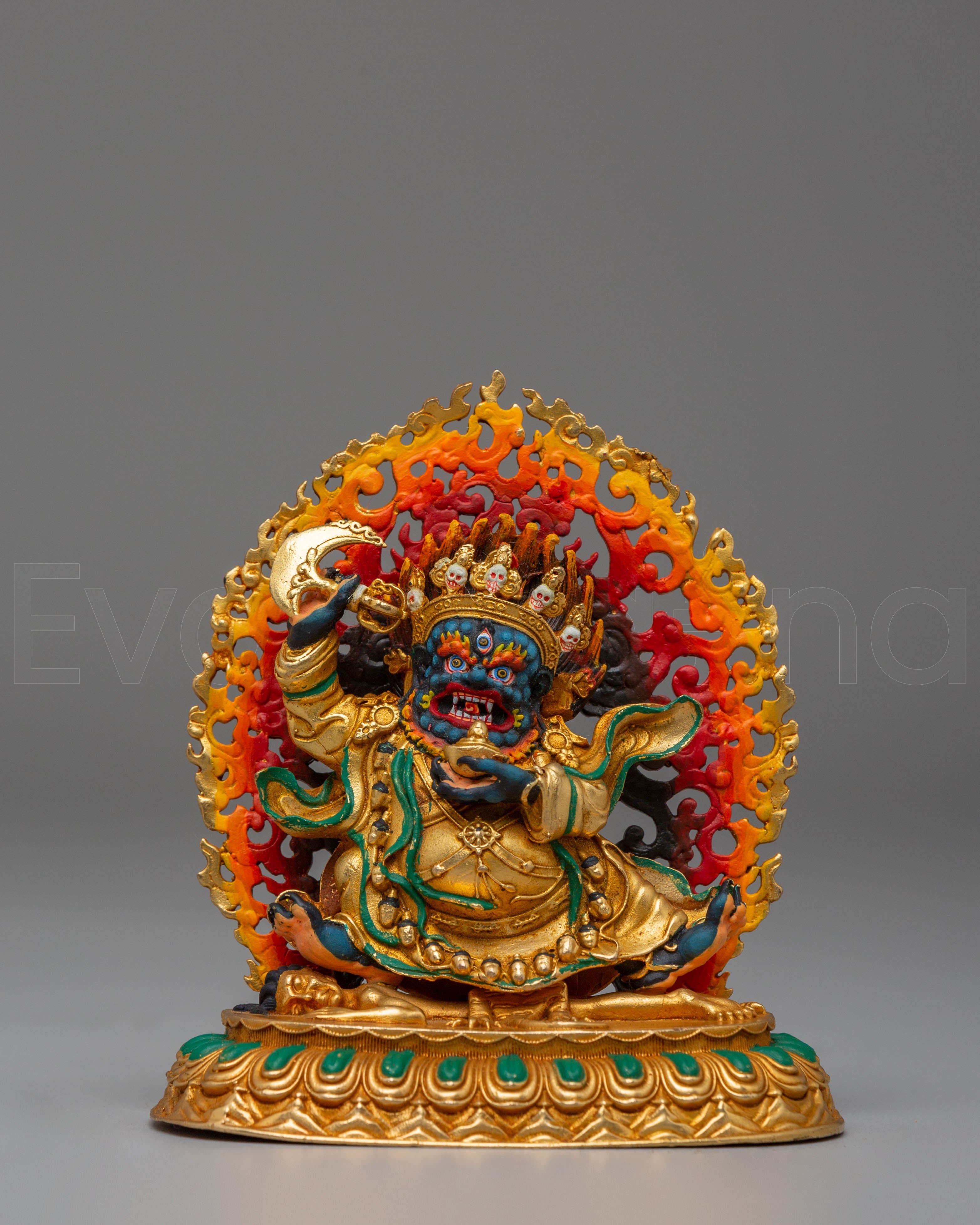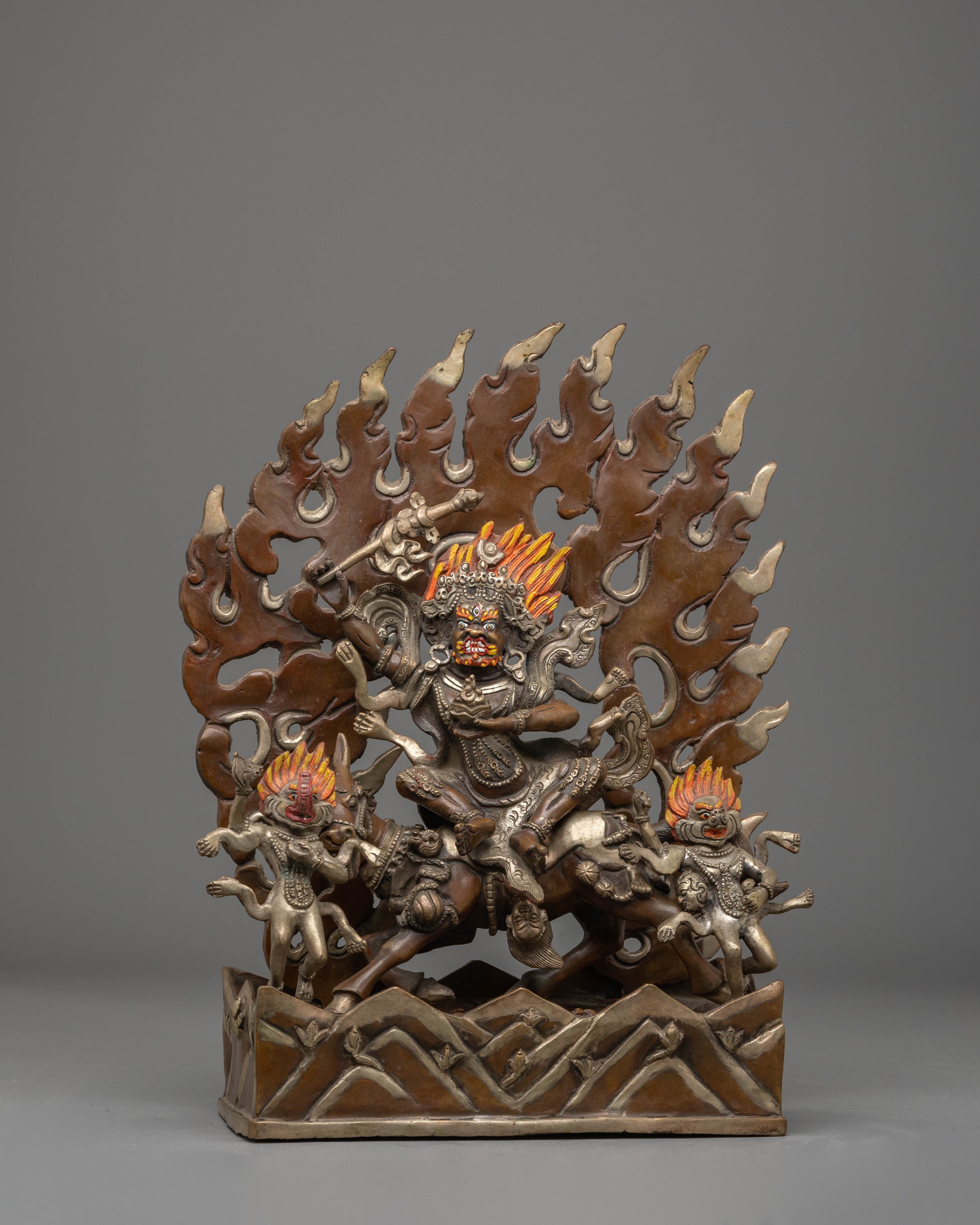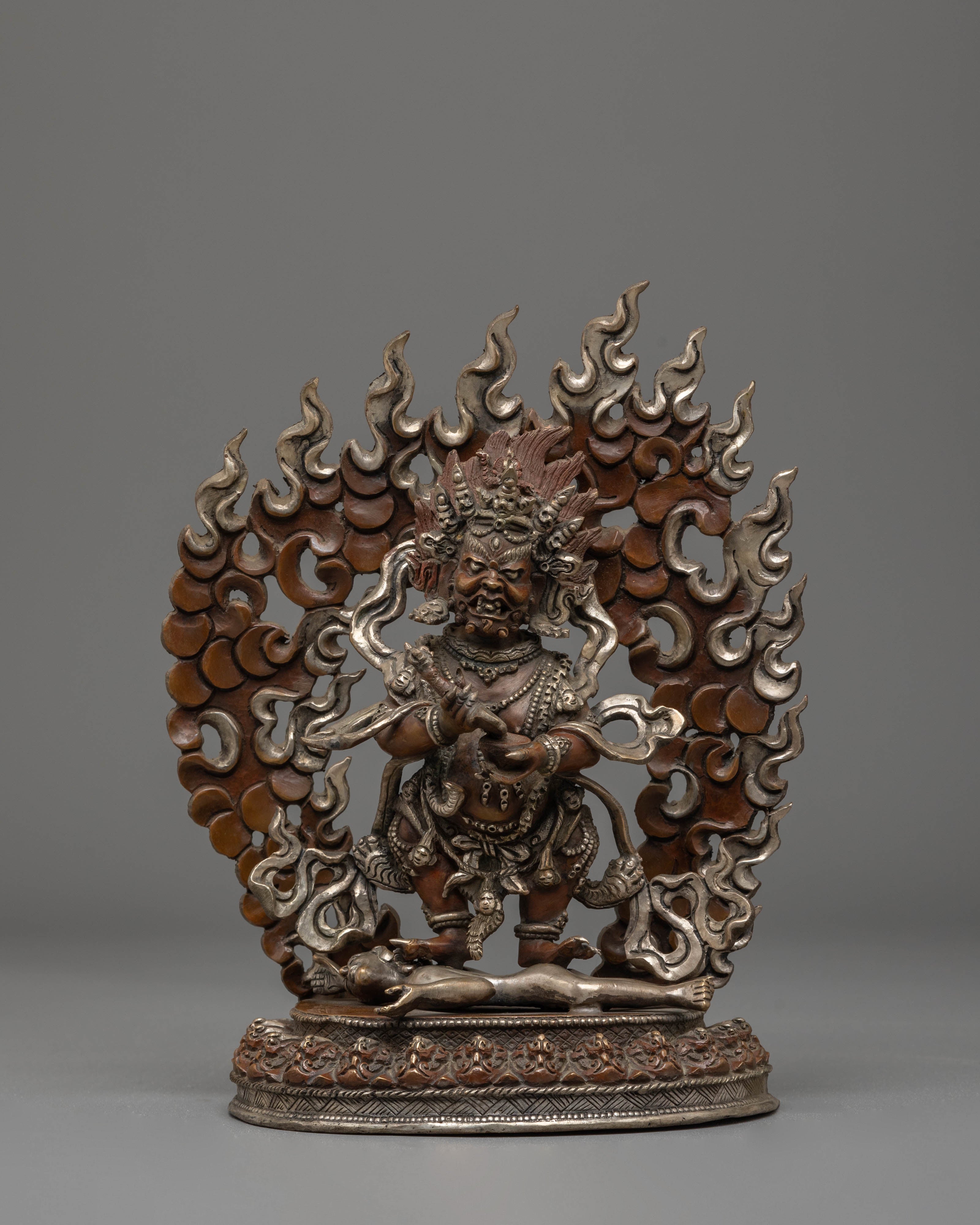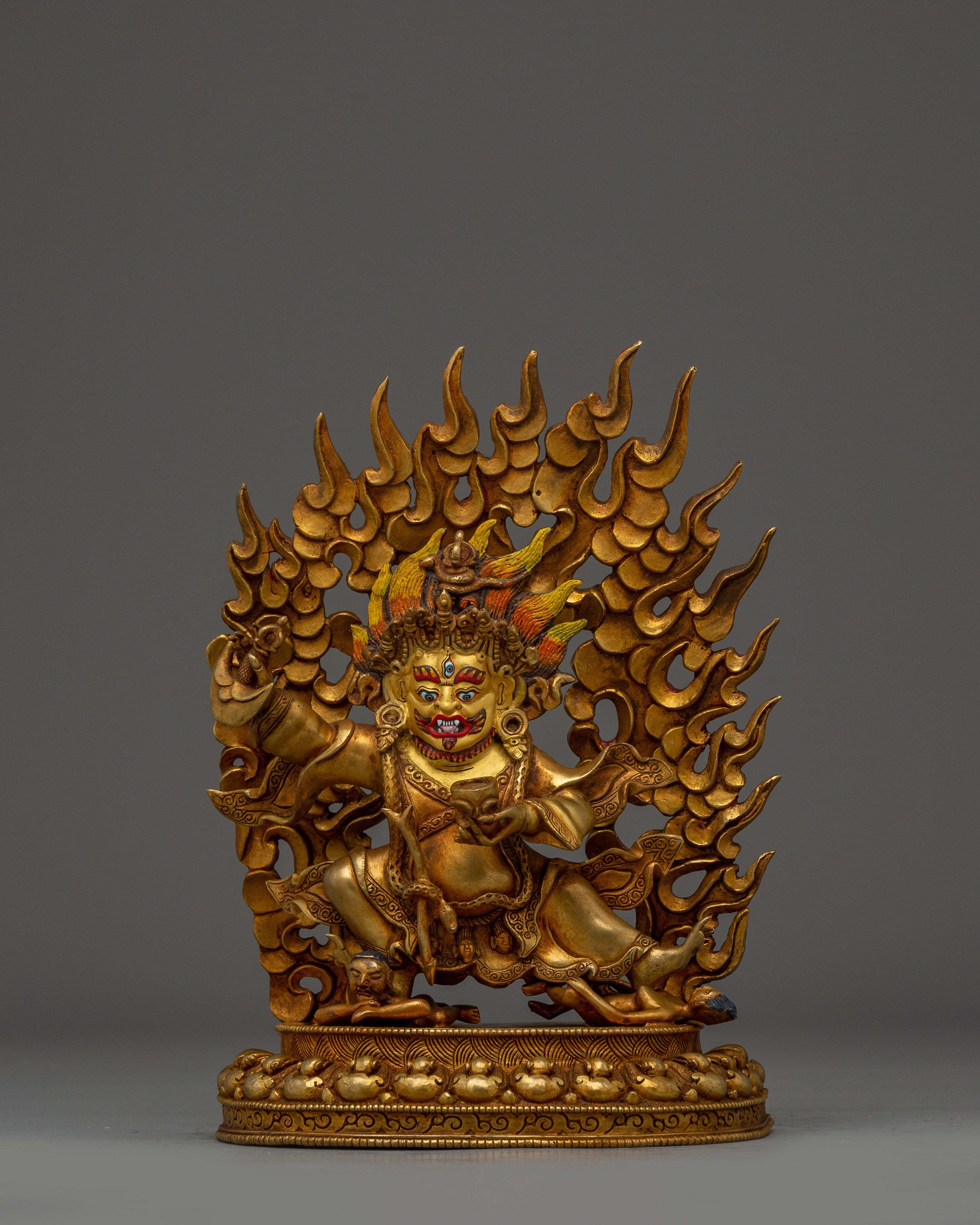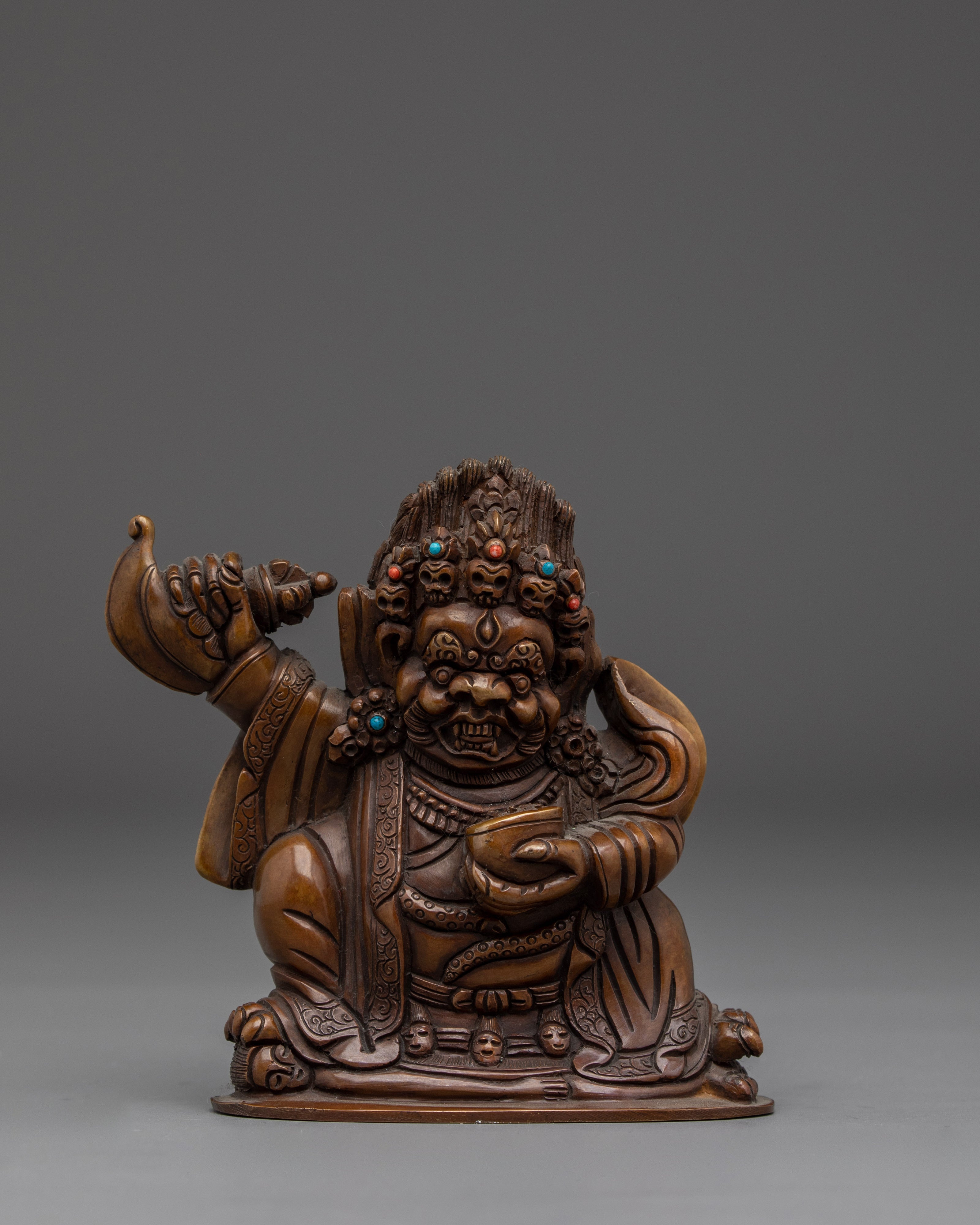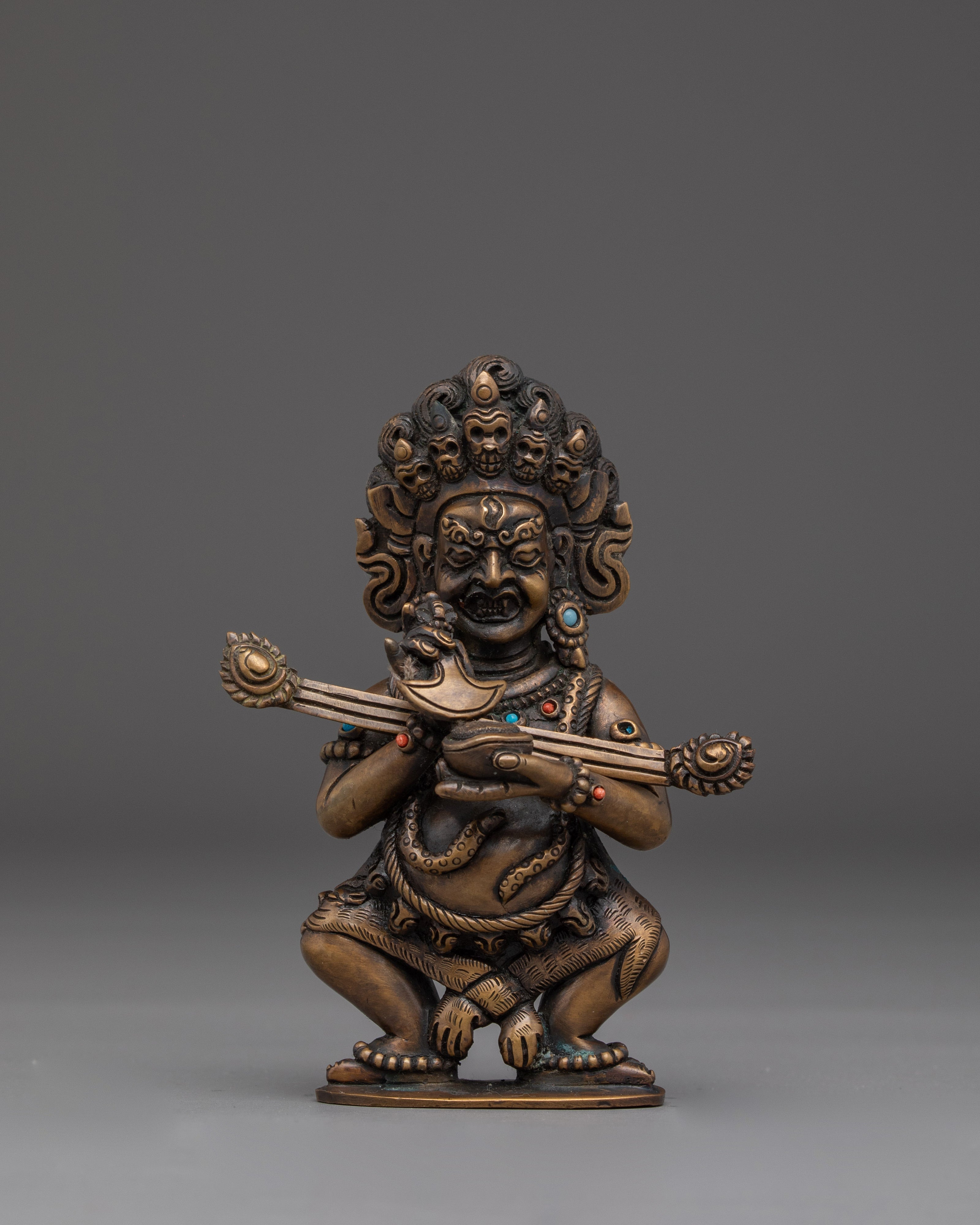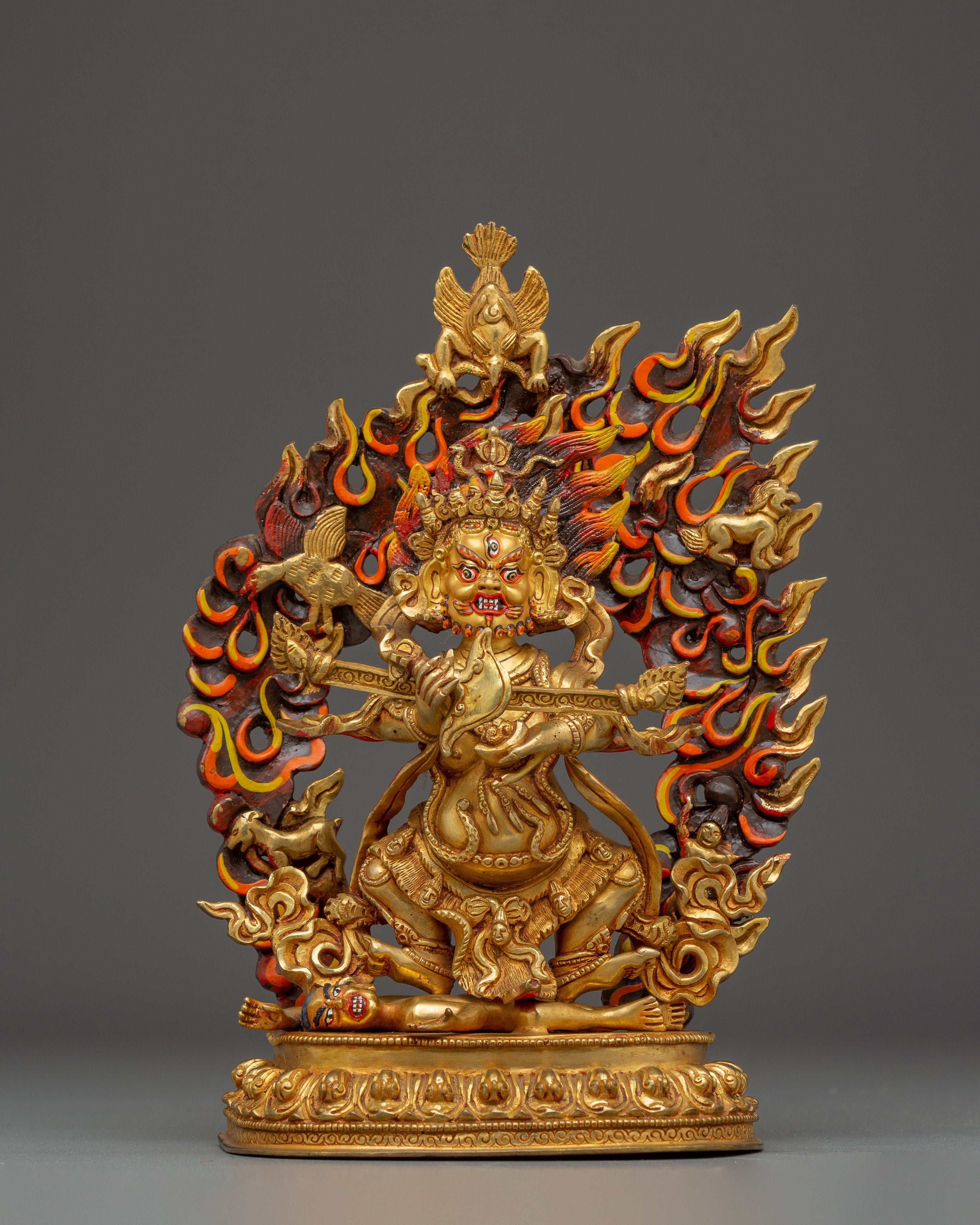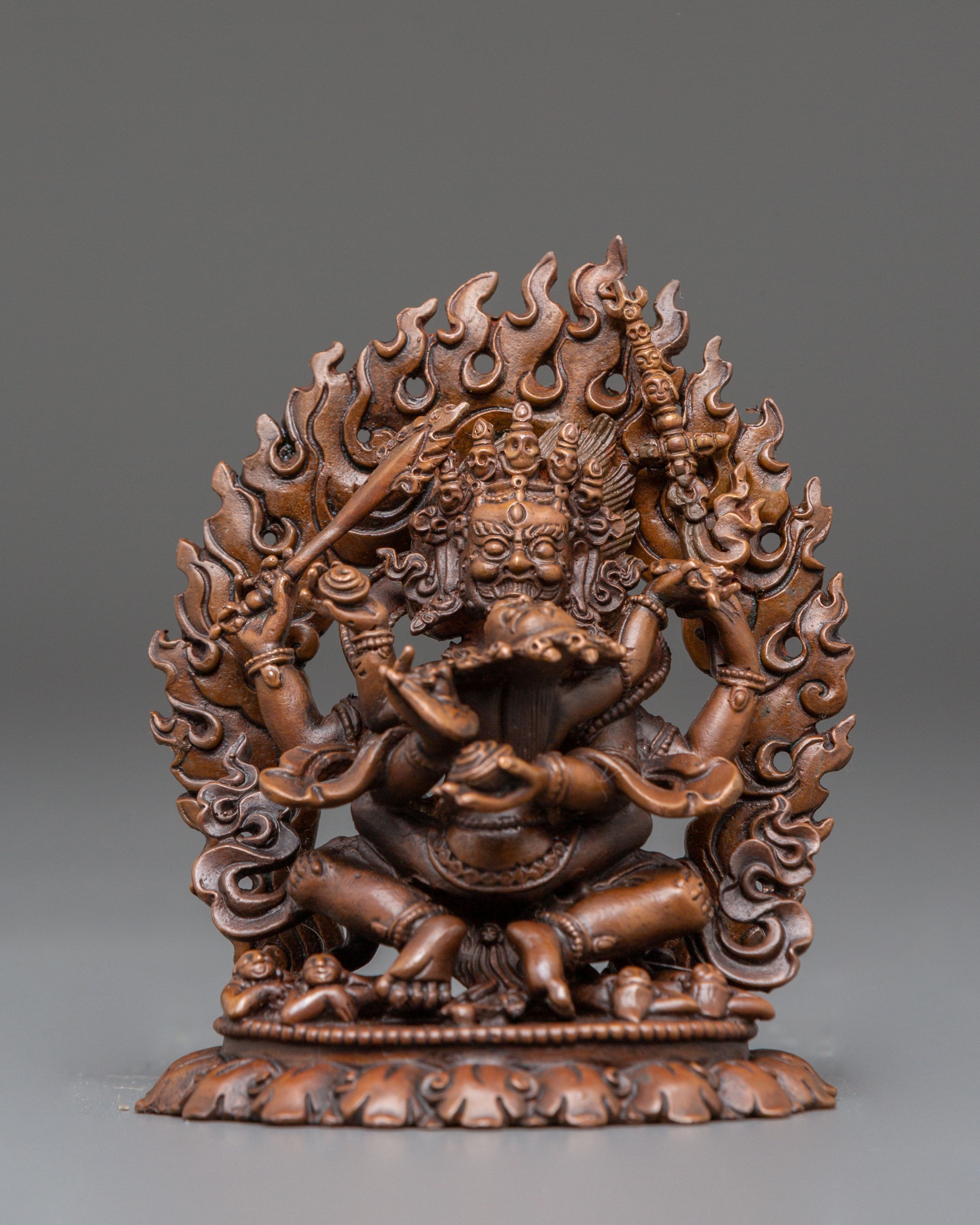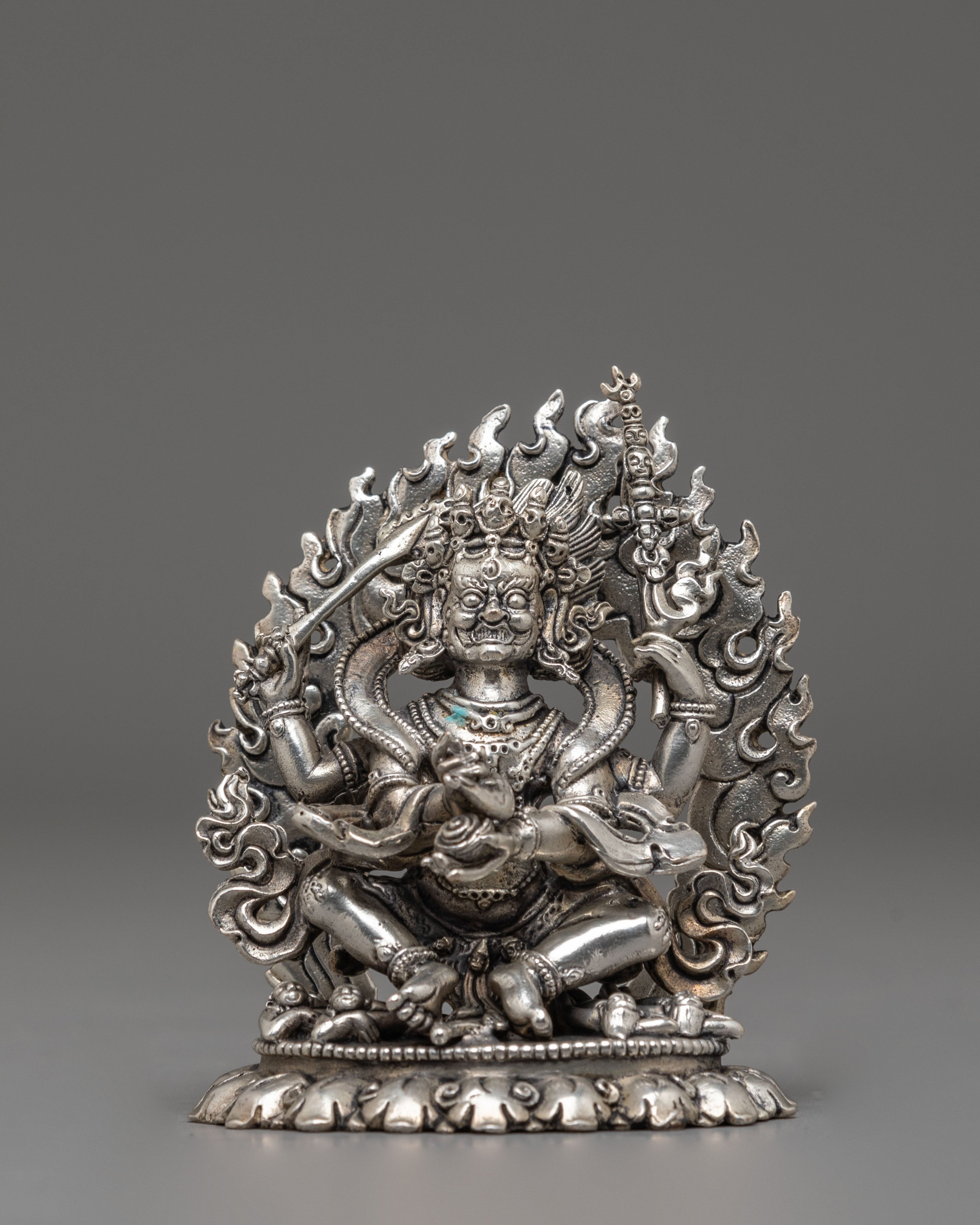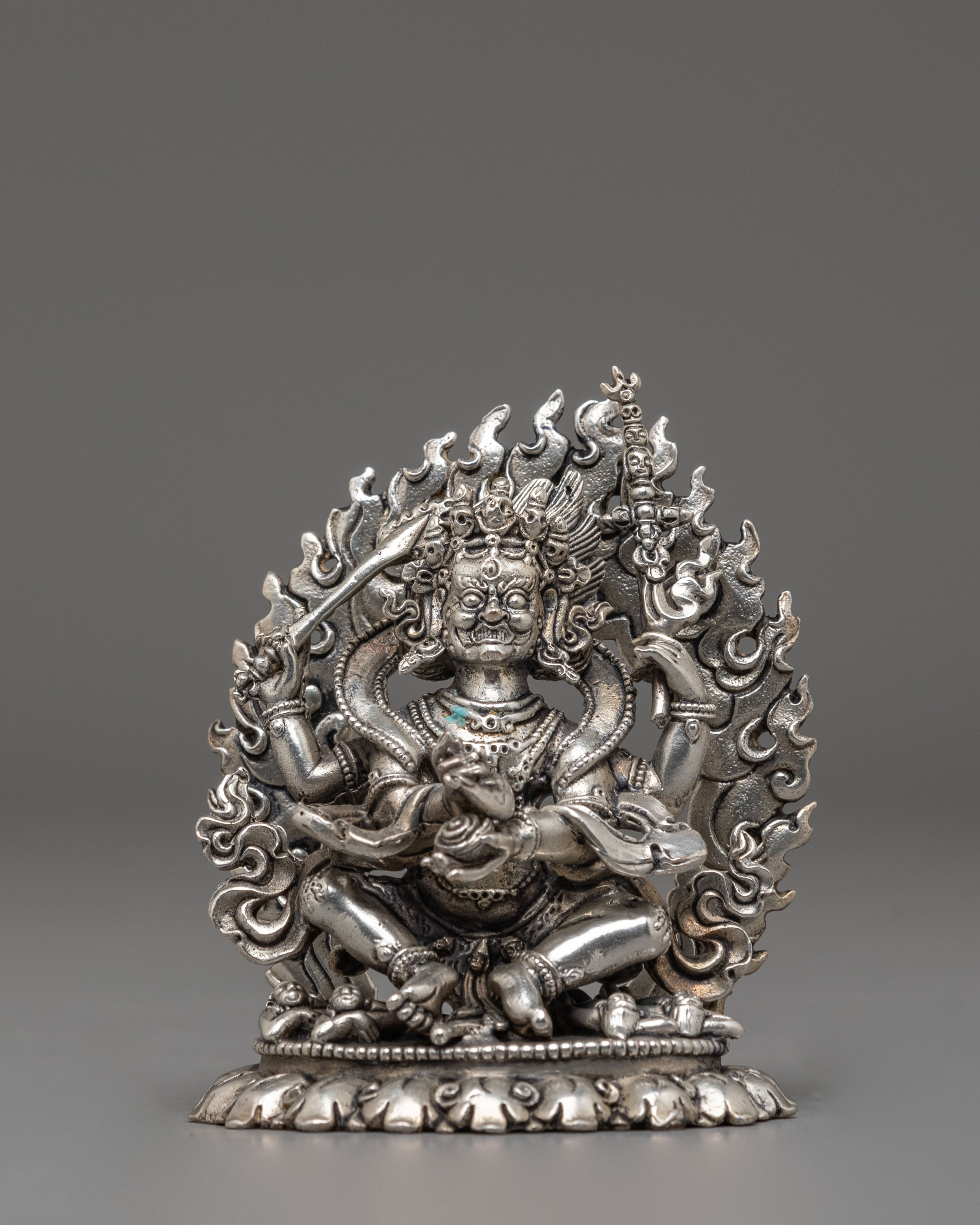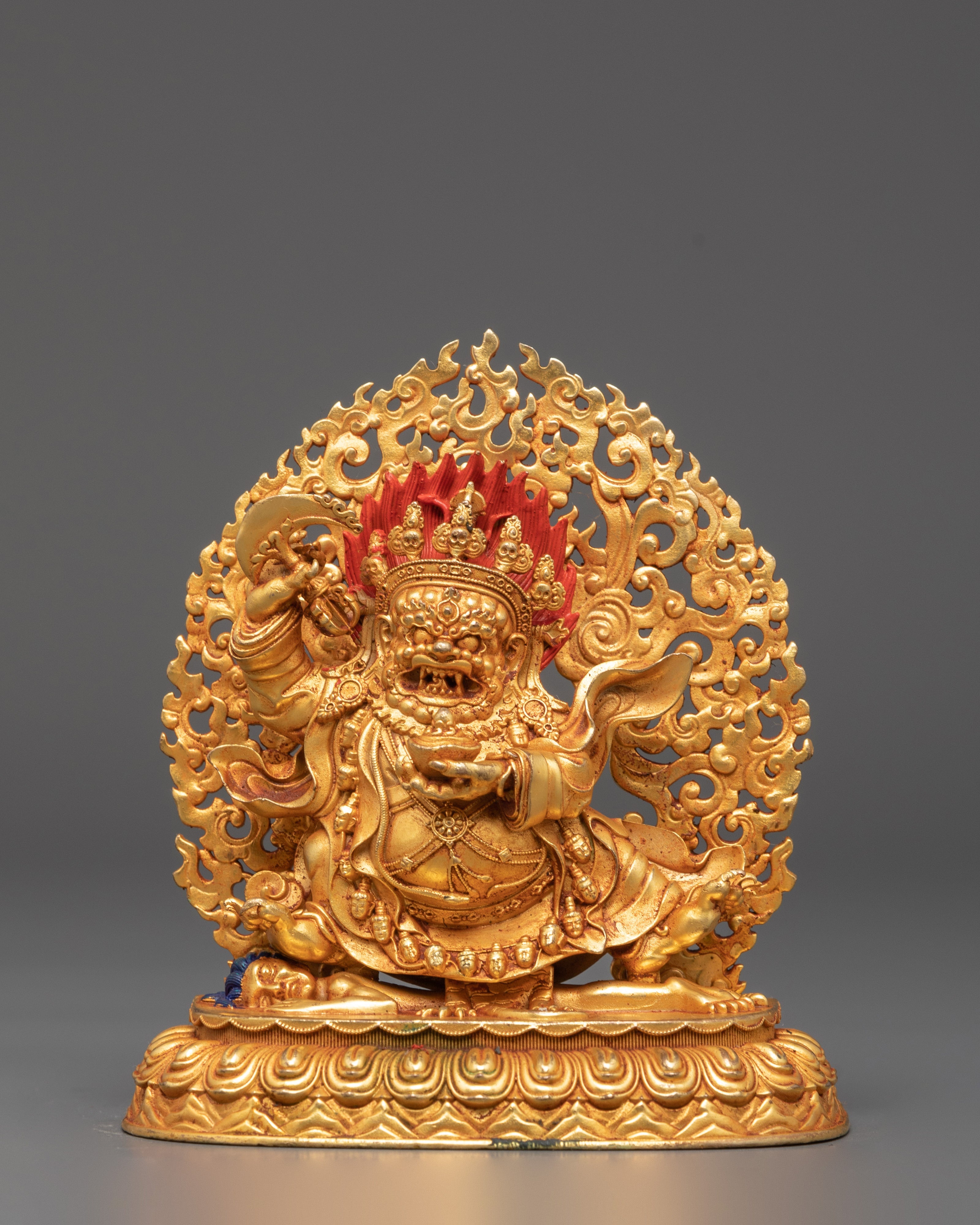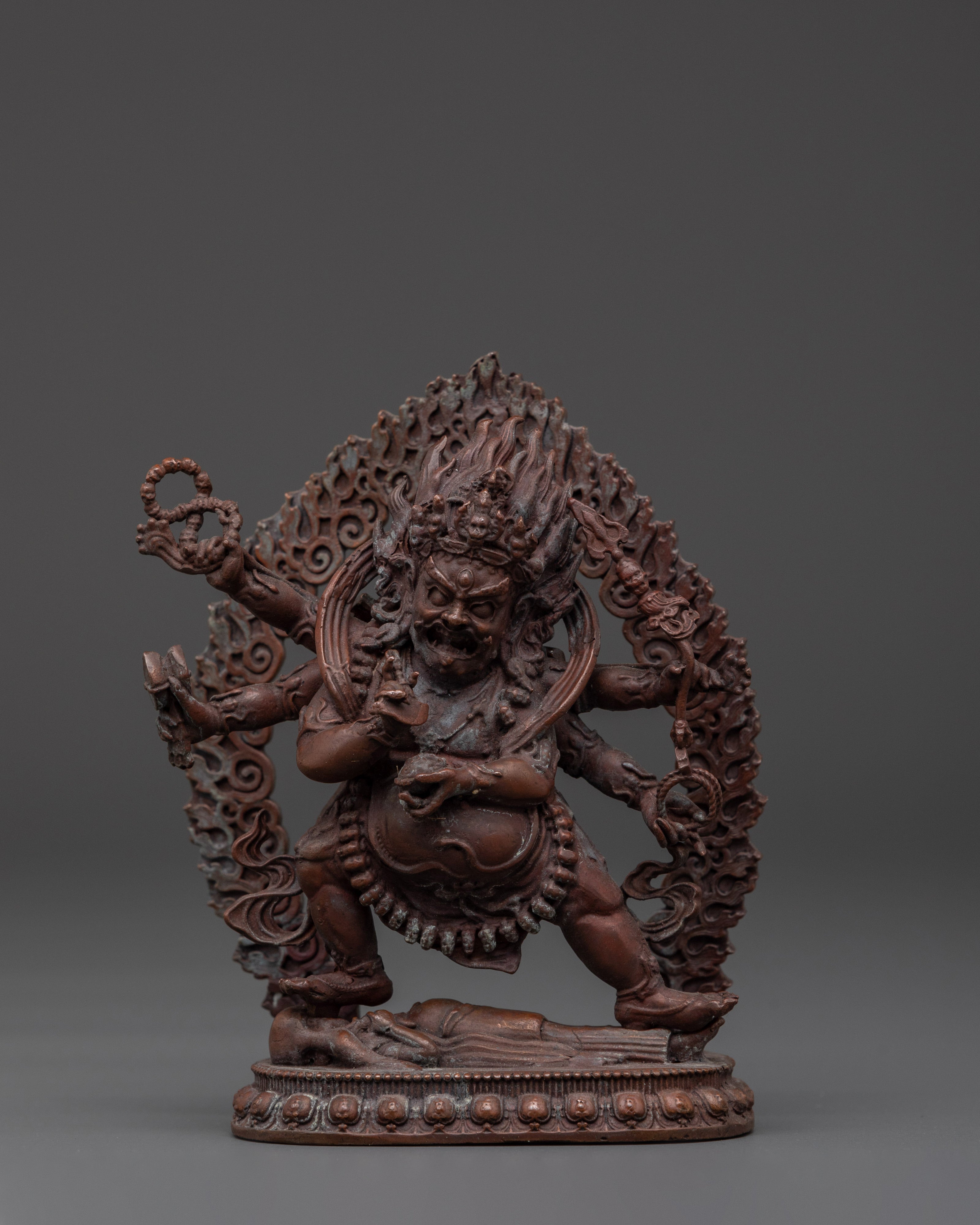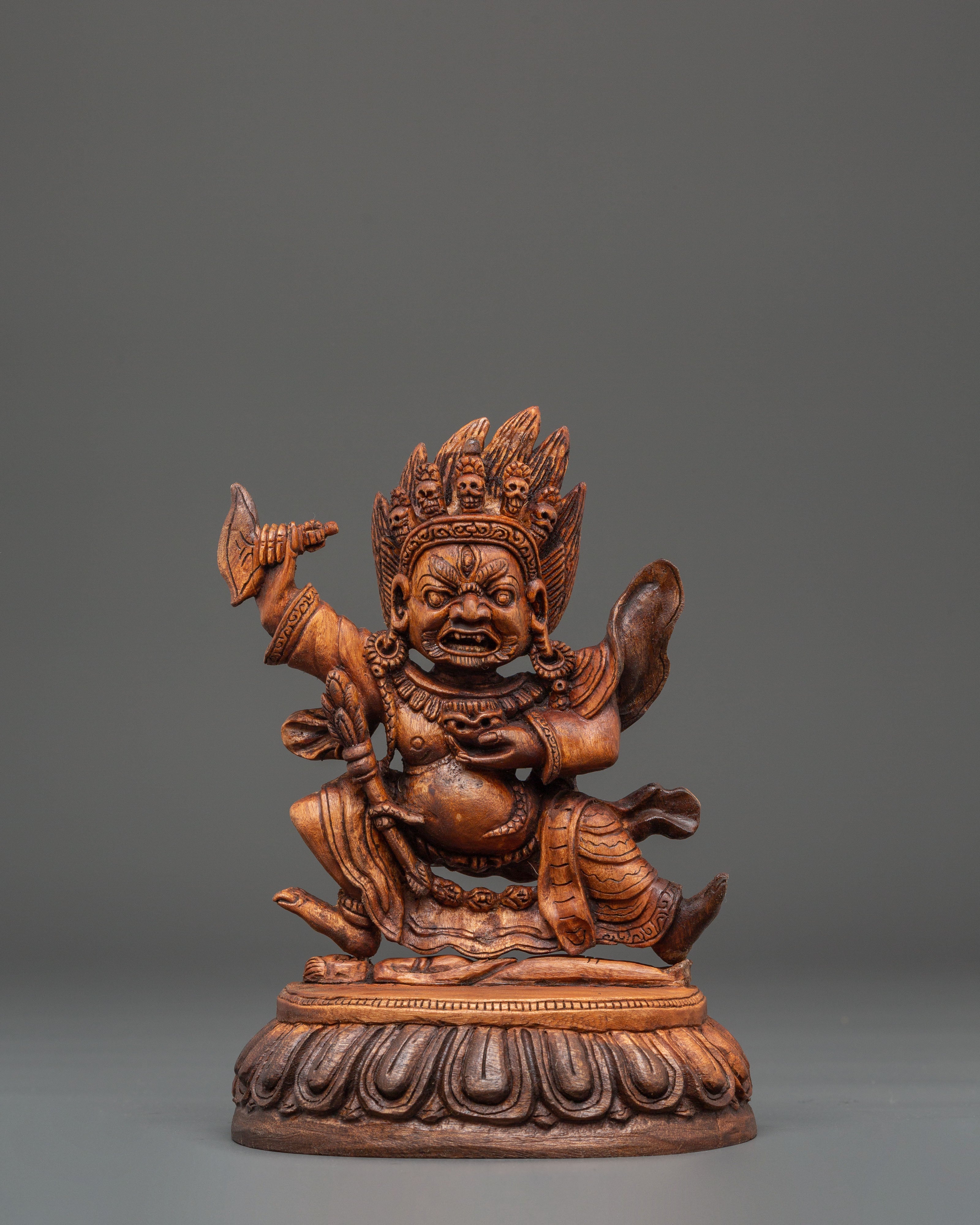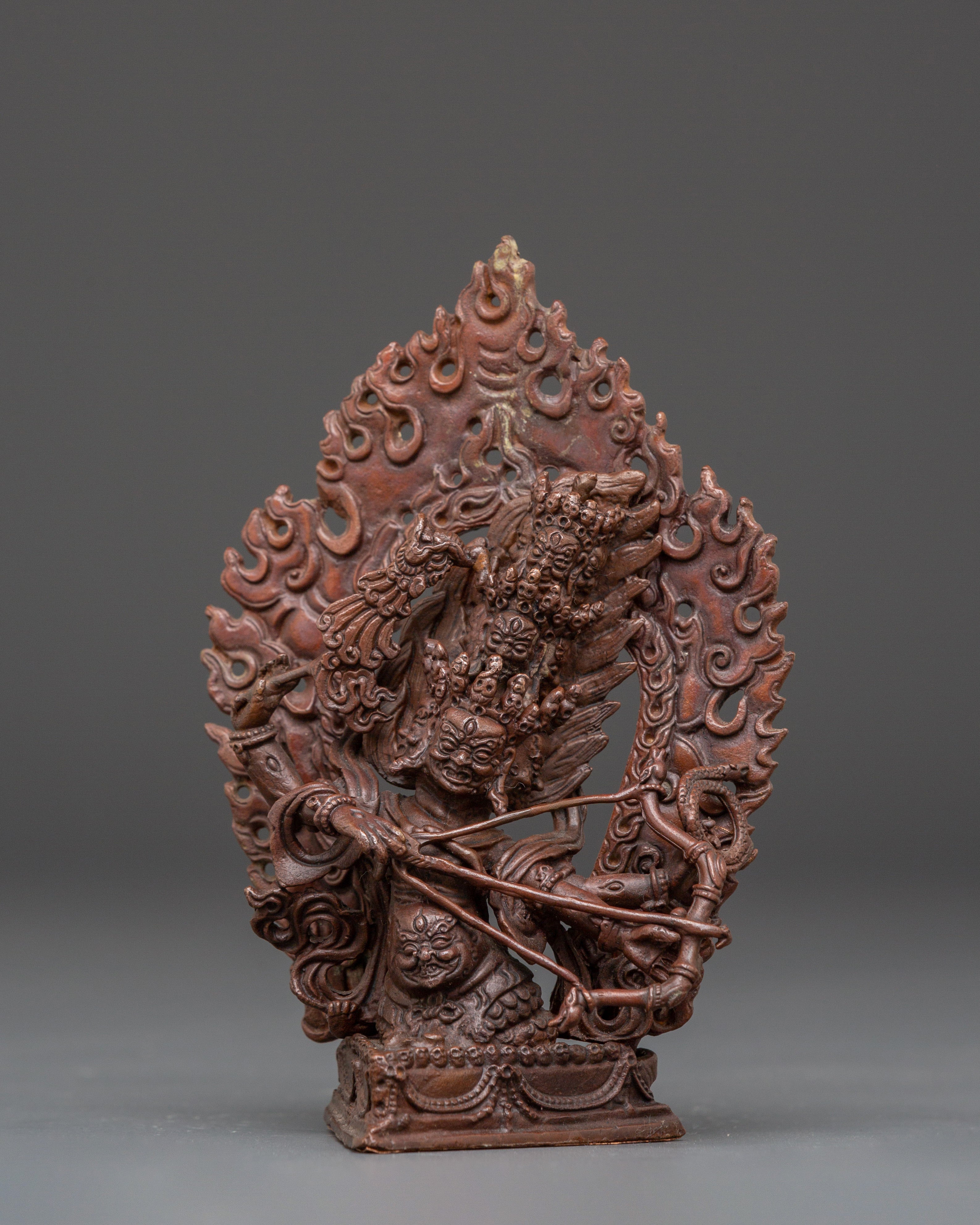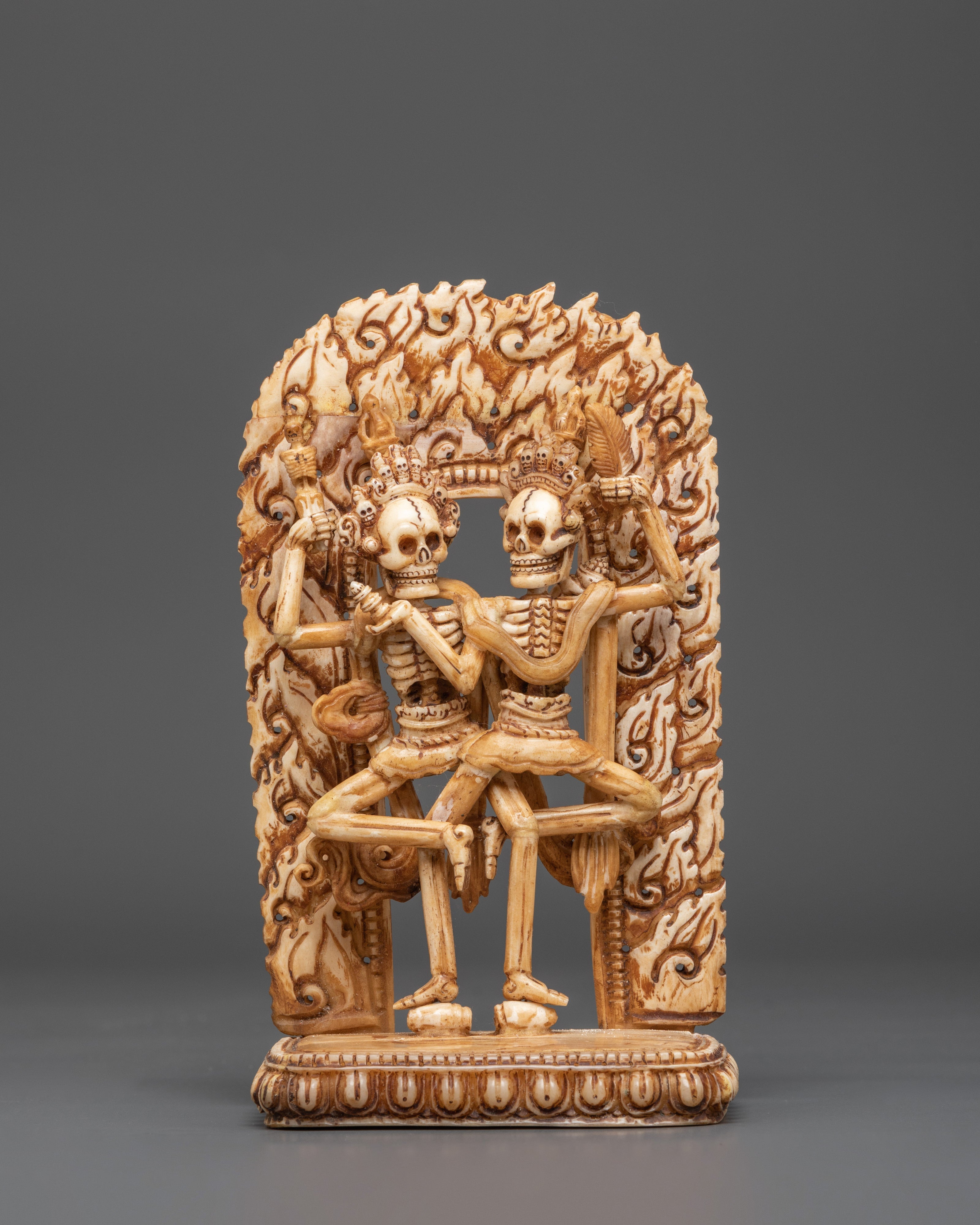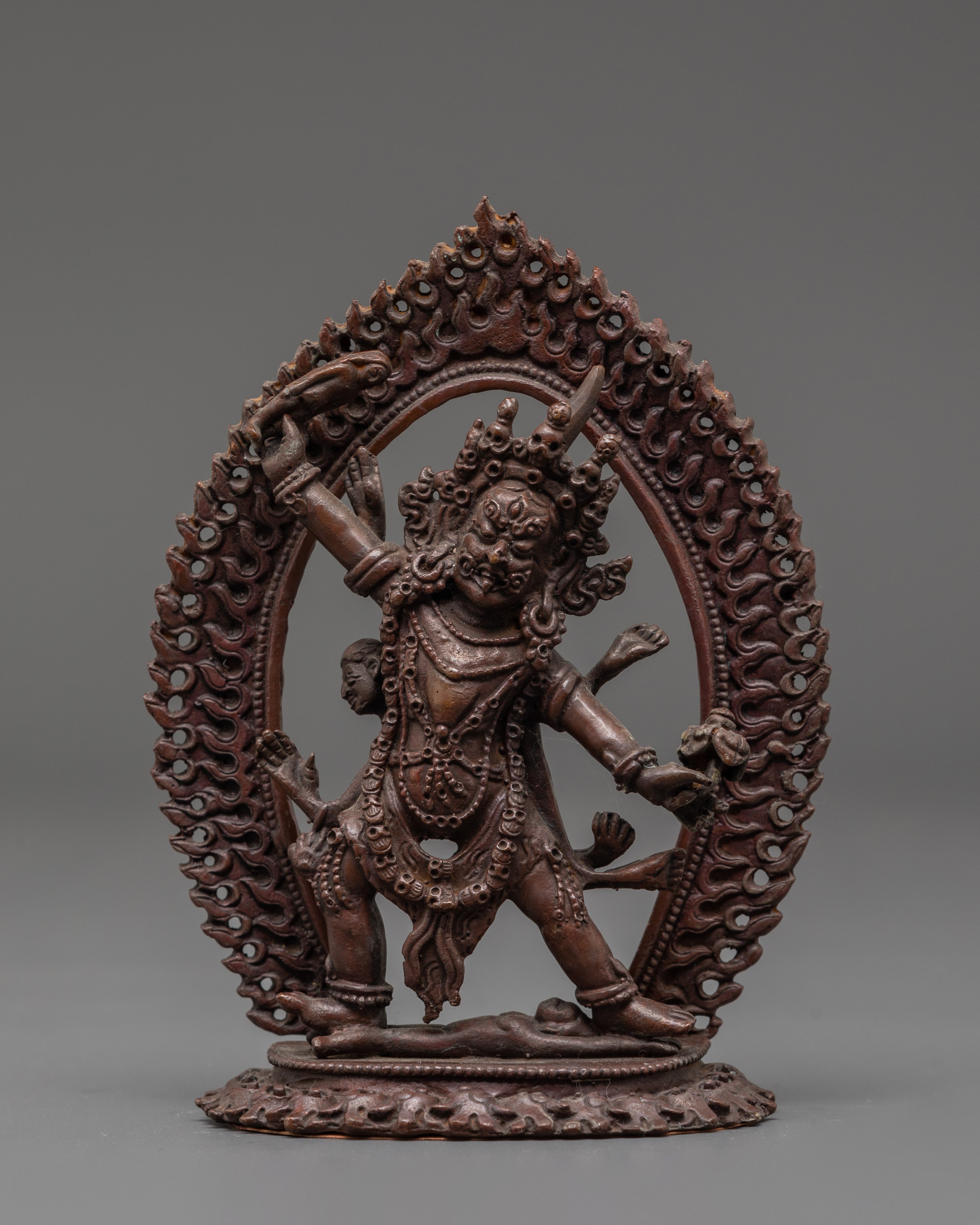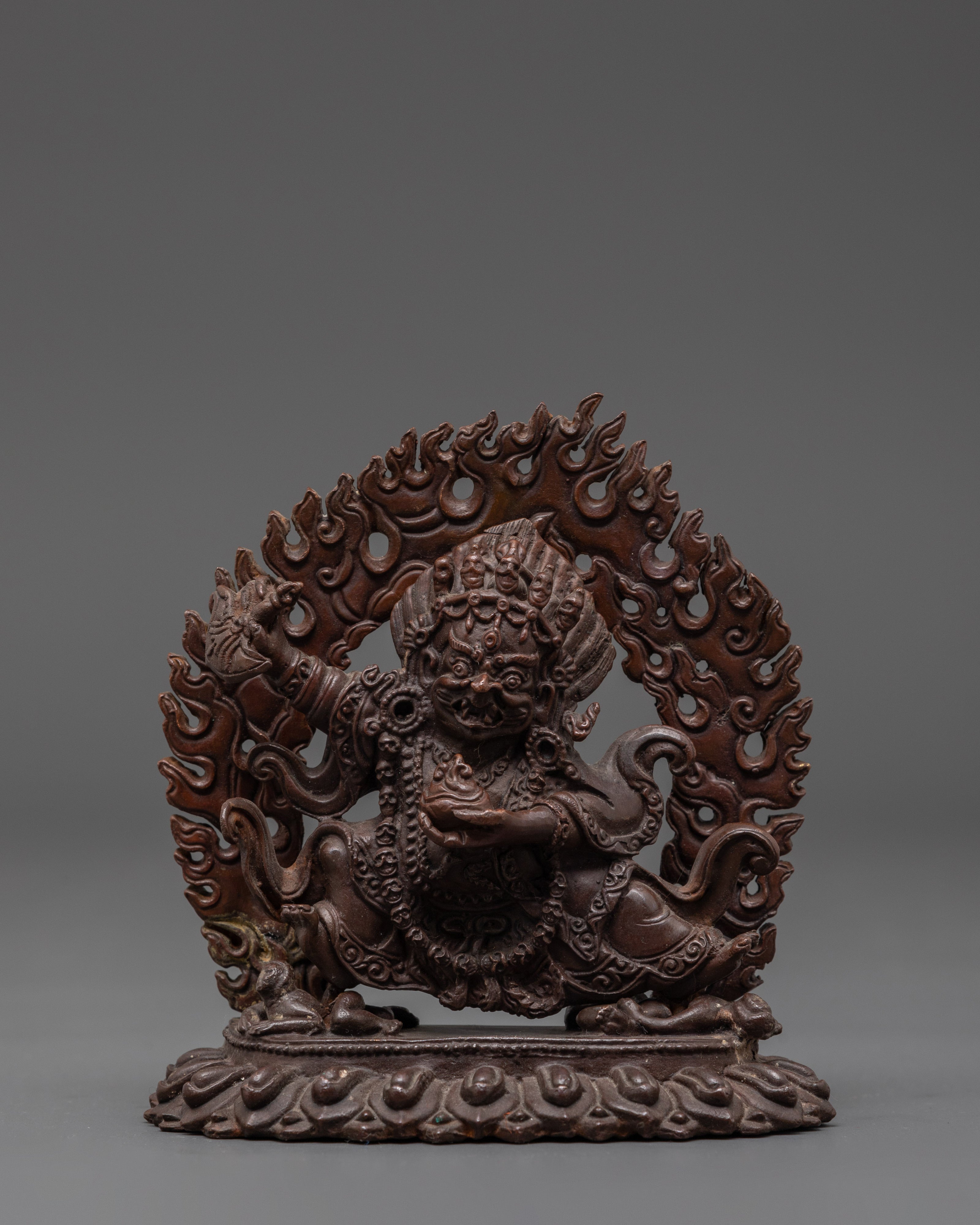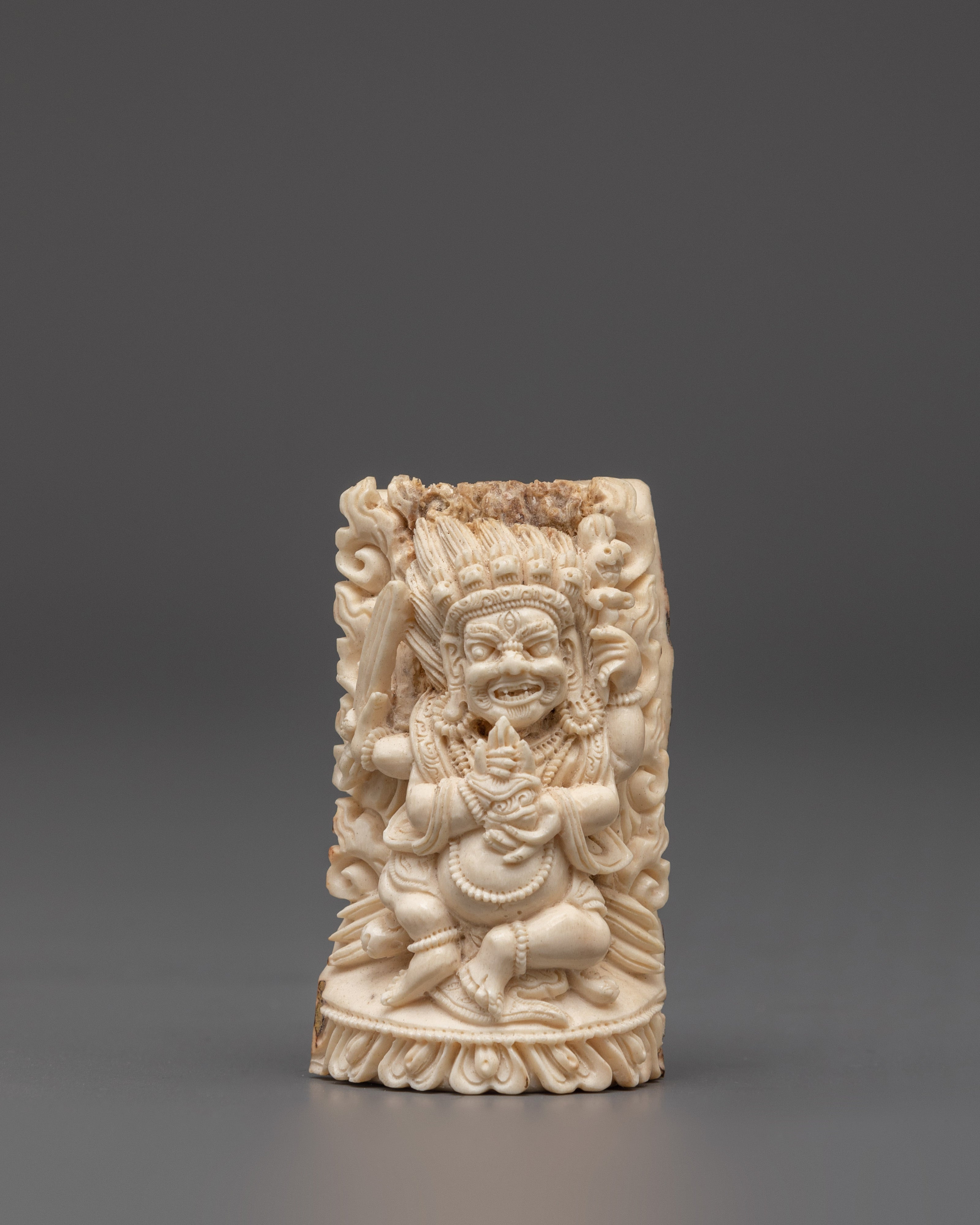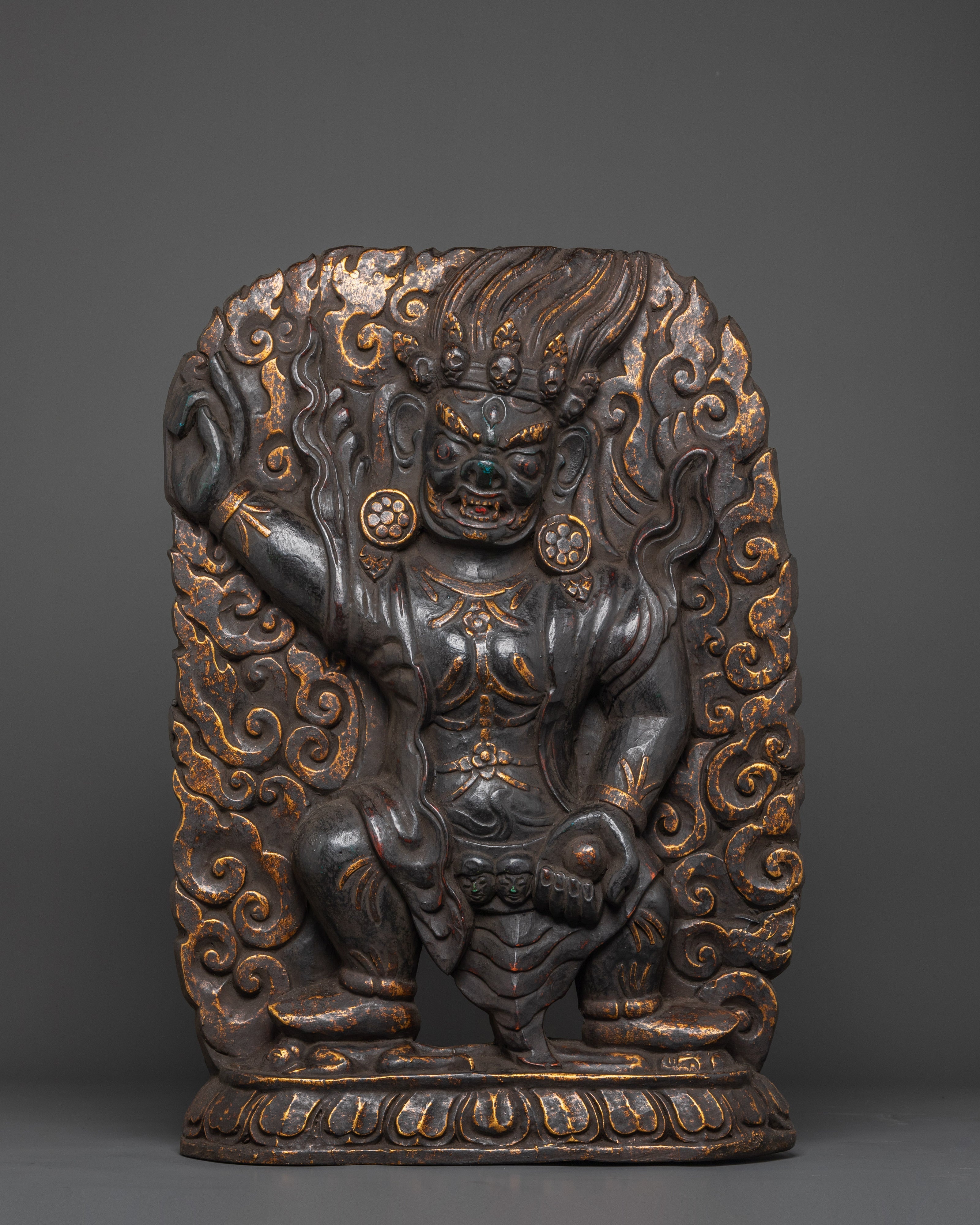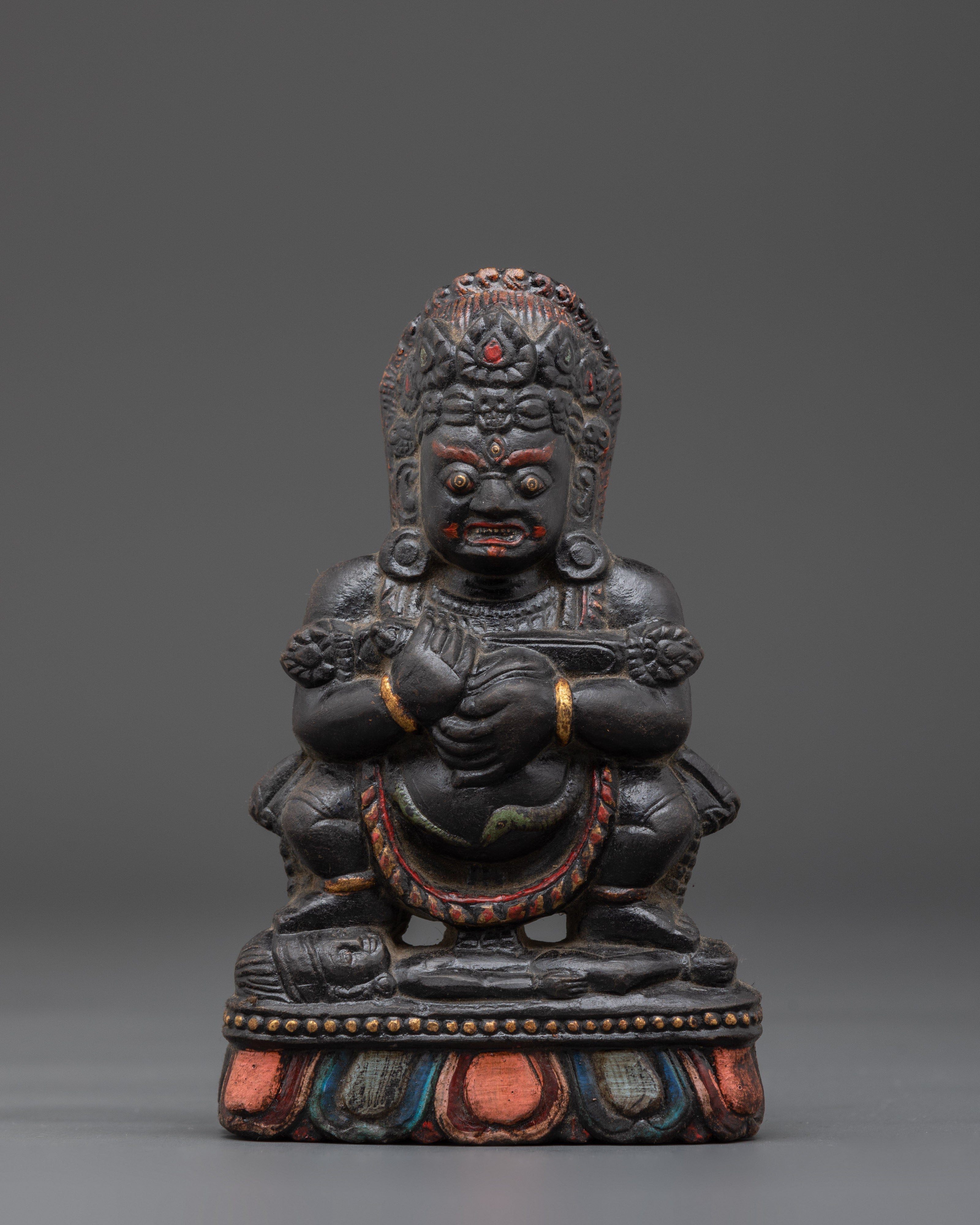Mahakala Statue
132 products
Showing 1 - 24 of 132 products
Mahakala: The Fierce Protector Deity in Tibetan Buddhism
Background and Significance: Mahakala, often called "The Great Black One," is a prominent and potent deity in Tibetan Buddhism. He belongs to the category of Dharmapalas, guardian deities tasked with preserving the Dharma (Buddhist teachings) and aiding practitioners on their spiritual journey. Mahakala holds a special connection to the Vajrayana tradition and is particularly influential in the Nyingma and Gelug schools of Tibetan Buddhism.
Mahakala is significant due to his role as a wrathful and protective guardian of the Dharma. He is invoked to clear obstacles, subdue evil forces, and provide practitioners with guidance and support. The practice of Mahakala is integral to Tibetan Buddhist rituals and ceremonies, especially in the context of deity yoga and safeguarding the teachings.
Attributes and Iconography: Mahakala is typically depicted as a wrathful deity with a black or dark blue complexion, symbolizing his transcendence of ignorance and ego. He possesses three eyes, a crown adorned with skulls, and a necklace made of freshly severed heads, all representing his victory over the cycle of birth and death. His body is adorned with jewels, and he is often portrayed as standing over a corpse or a symbolic obstacle.
Mahakala's numerous arms hold various symbolic implements, including a trident, a chopper, a skull cup filled with blood, and a damaru (a small drum). These attributes signify his ability to shatter illusions, eliminate hindrances, and protect the Dharma.
Associated Stories and Beliefs: Mahakala has various names, forms, and distinct subtypes and practices. One of the most well-known forms is the Four-Armed Mahakala, renowned for his swift and potent assistance in overcoming obstacles. Practitioners often invoke Mahakala through rituals, mantras, and imagery to seek his blessings and protection.
The practice of Mahakala is strongly associated with removing obstacles and adverse influences on one's spiritual path. He is believed to aid practitioners in surmounting inner and outer hindrances, enabling them to progress to enlightenment.
In Tibetan Buddhism, Mahakala is frequently invoked during significant rituals, empowerments, and retreats. His presence is considered essential to ensure the effectiveness and integrity of these practices.
In conclusion, Mahakala, the Great Black One in Tibetan Buddhism, is a powerful and indispensable figure. His significance lies in his fervent defense of the Dharma and its adherents. Mahakala, despite his wrathful appearance, embodies the wisdom and compassion of enlightened beings. He uses his strength to eliminate obstacles and guide sincere seekers on their spiritual journey.



